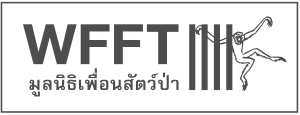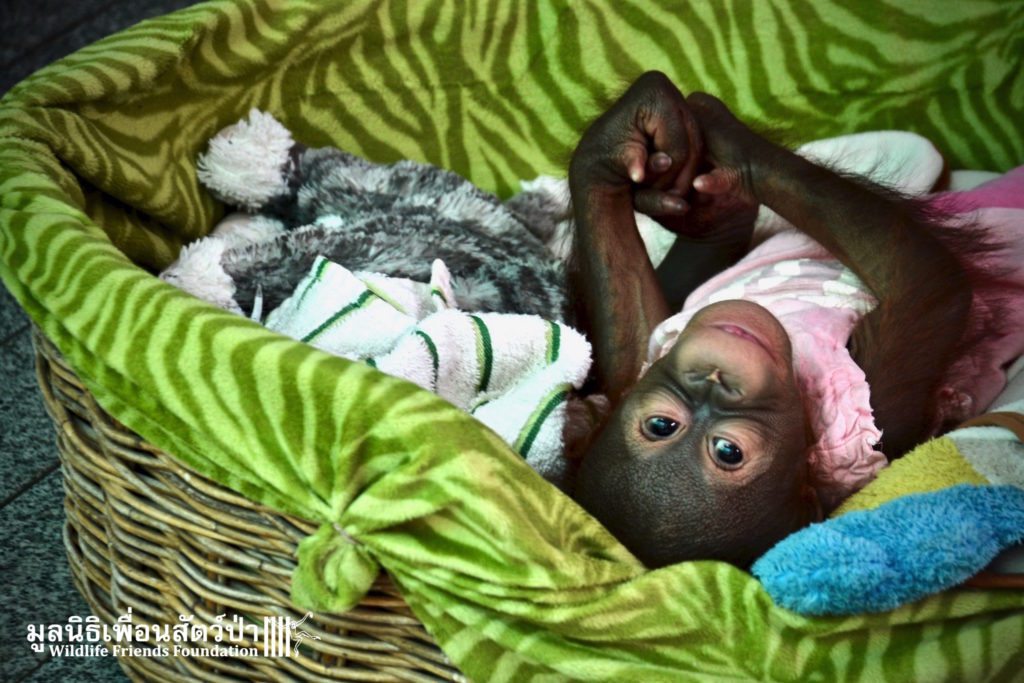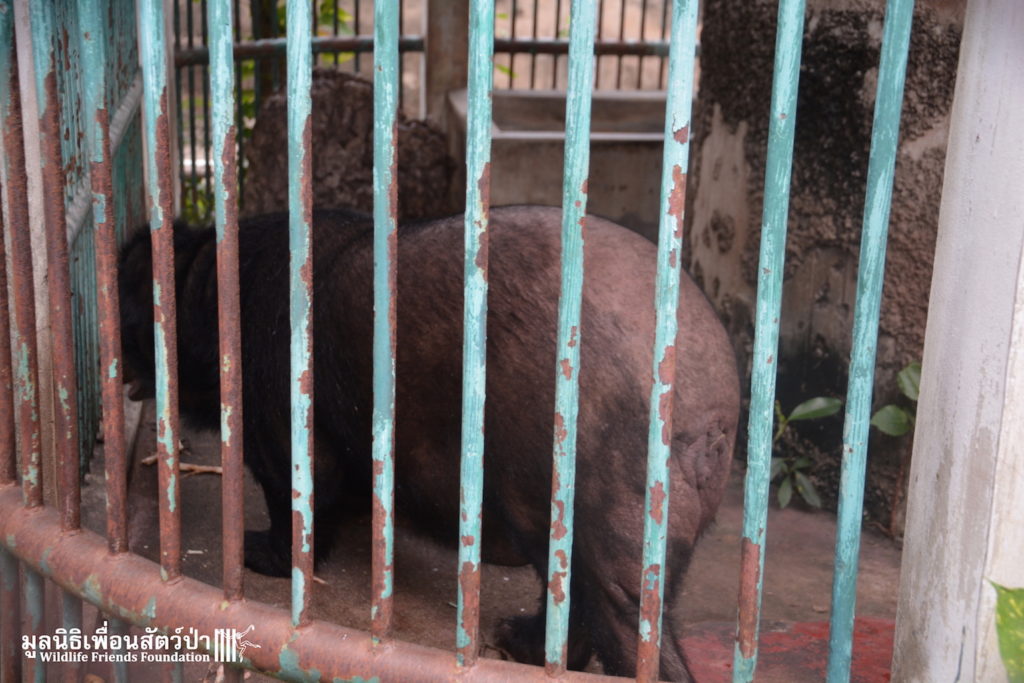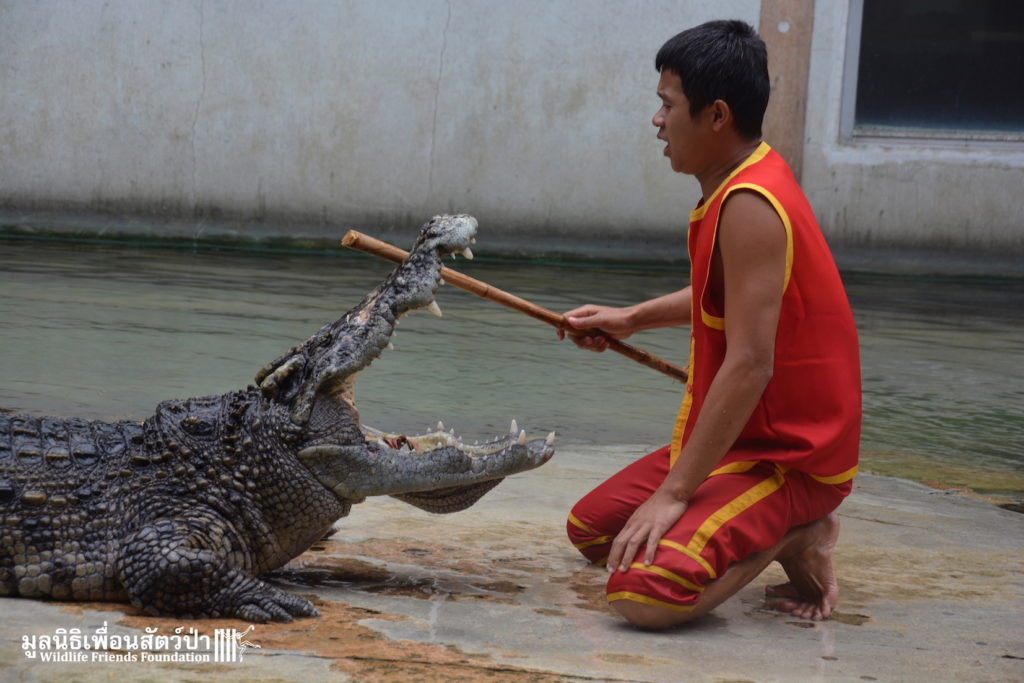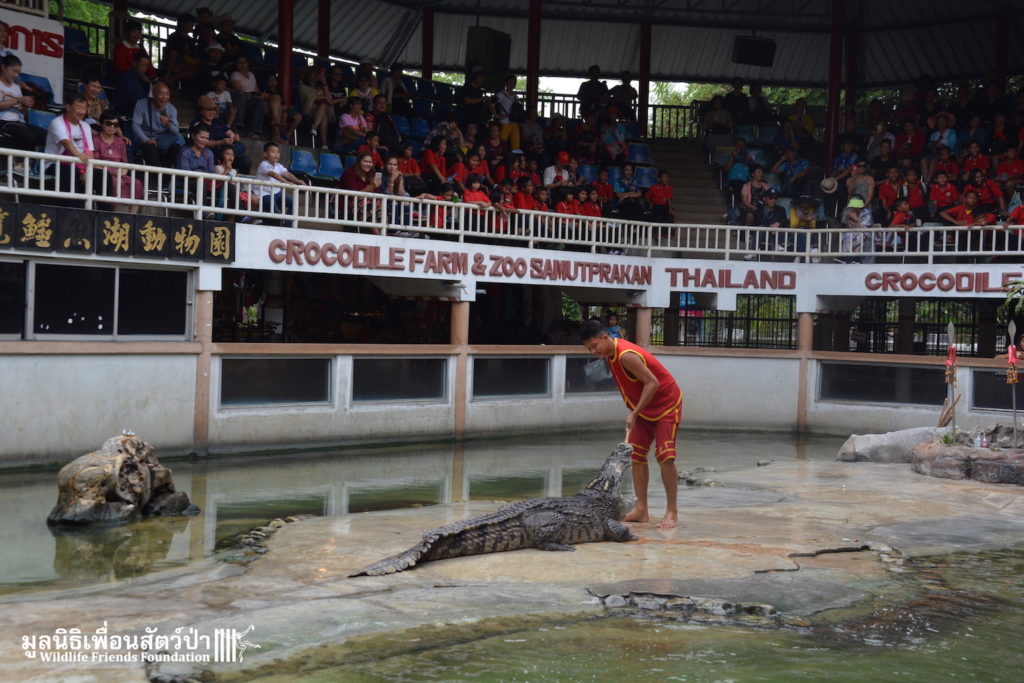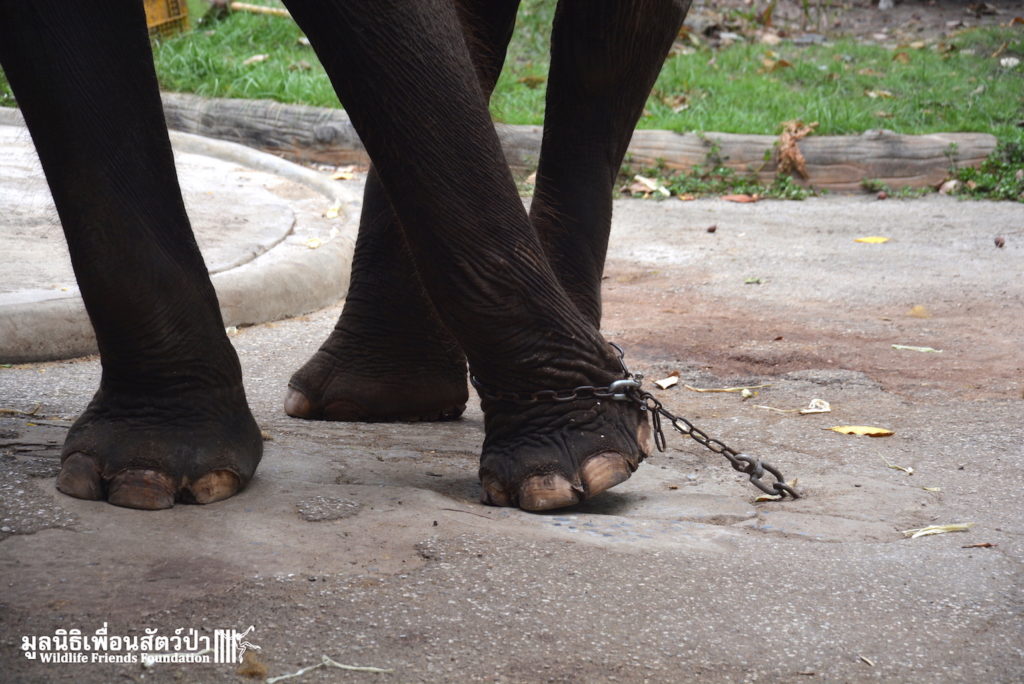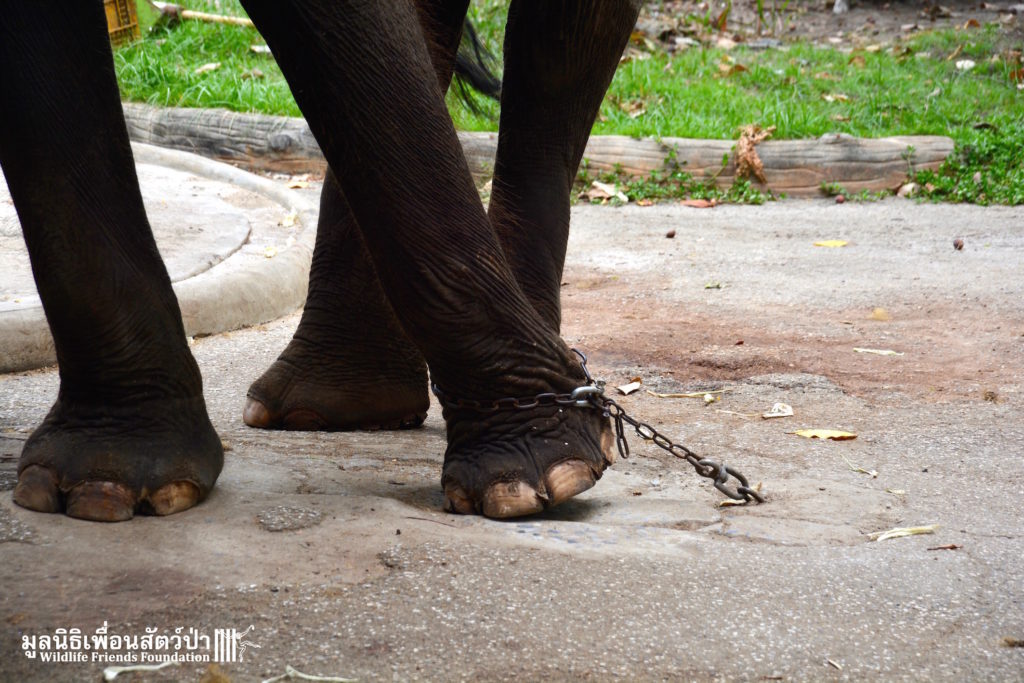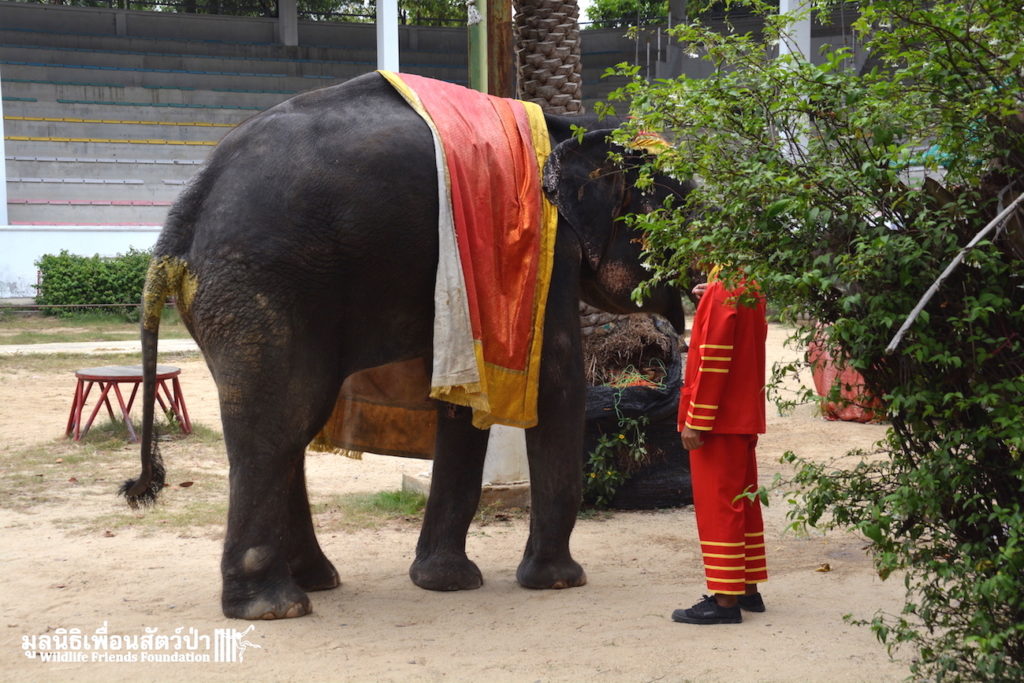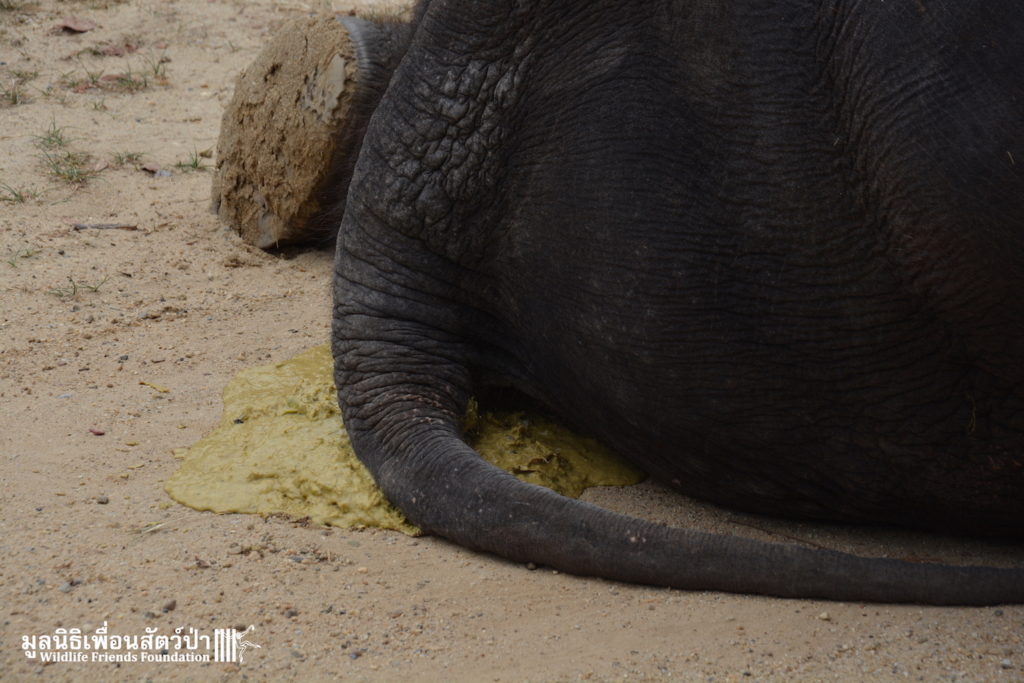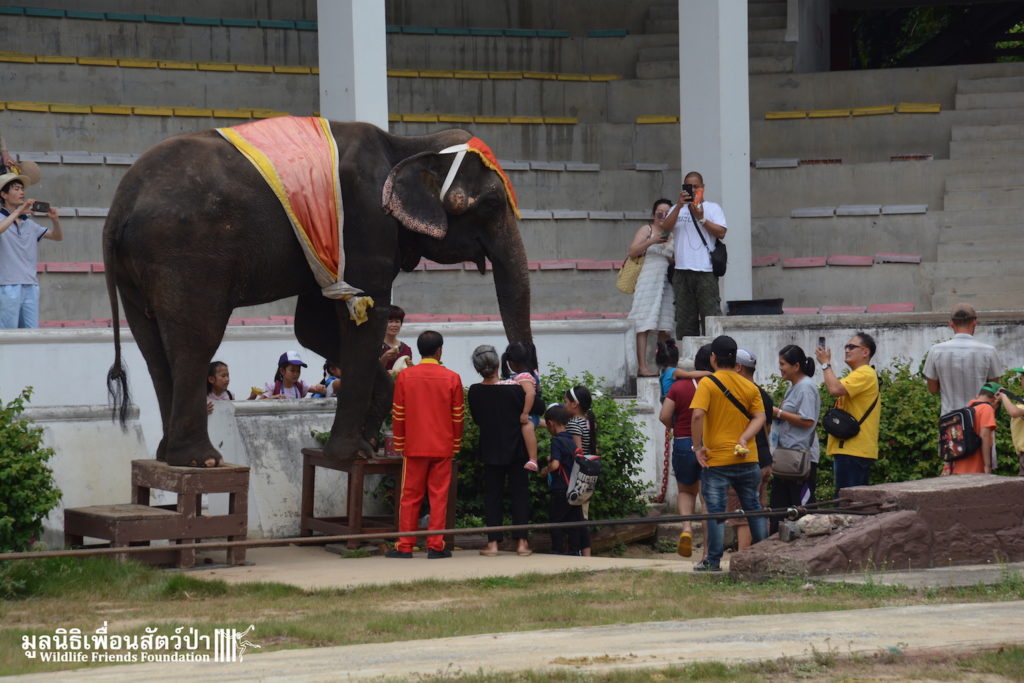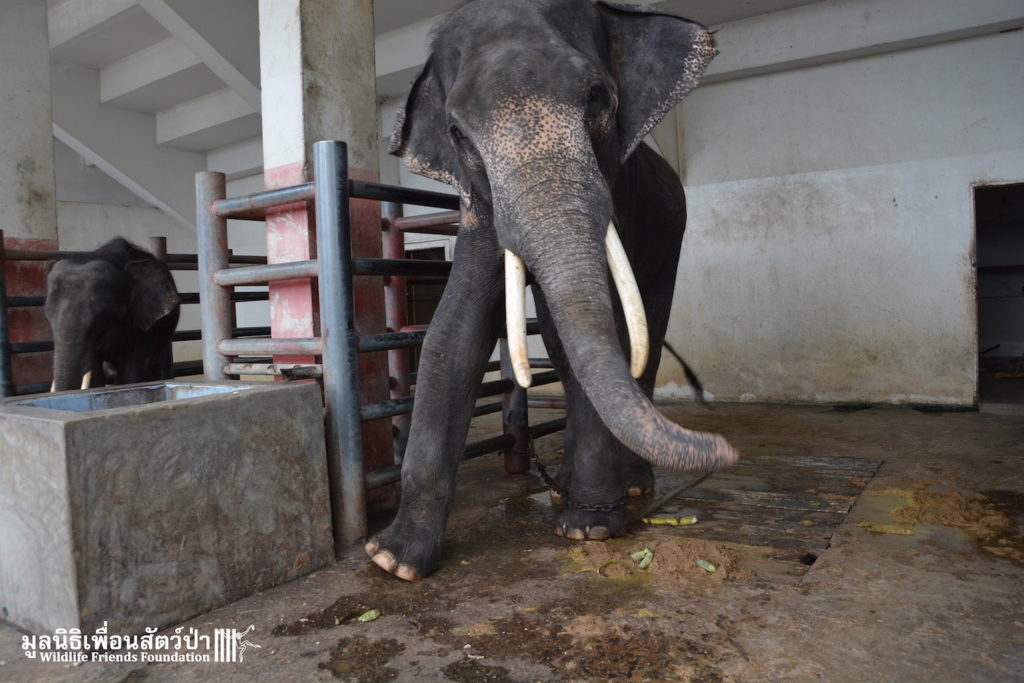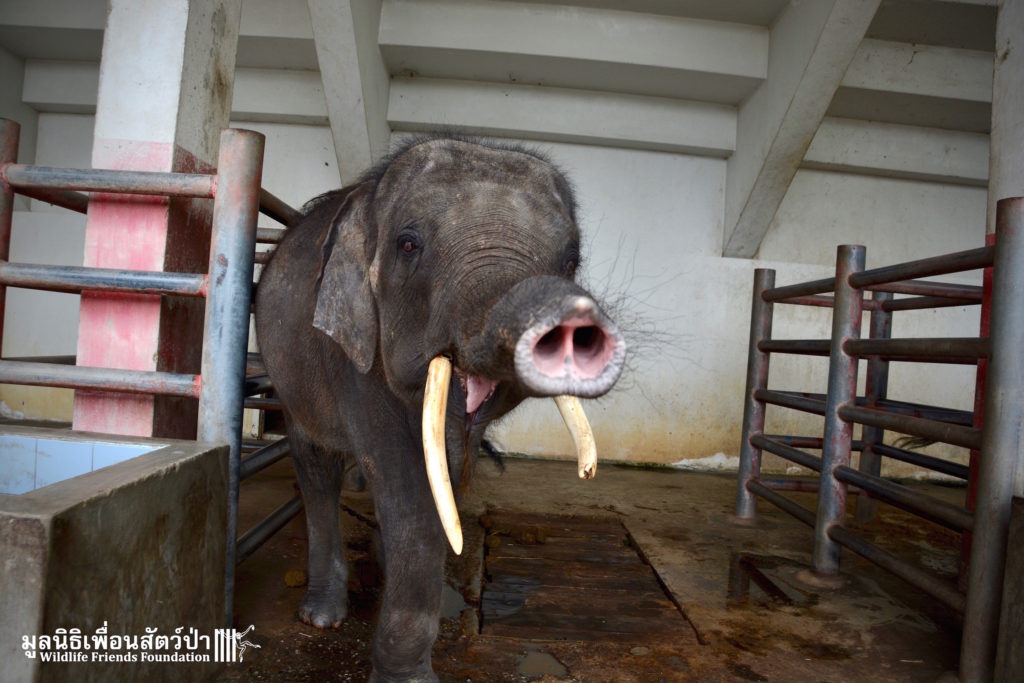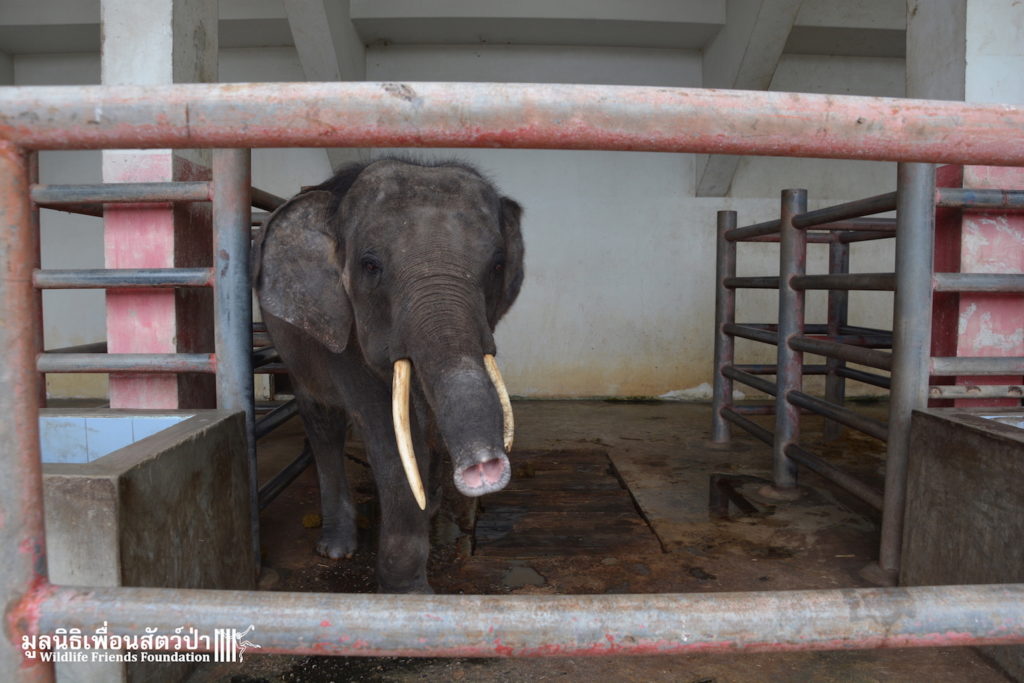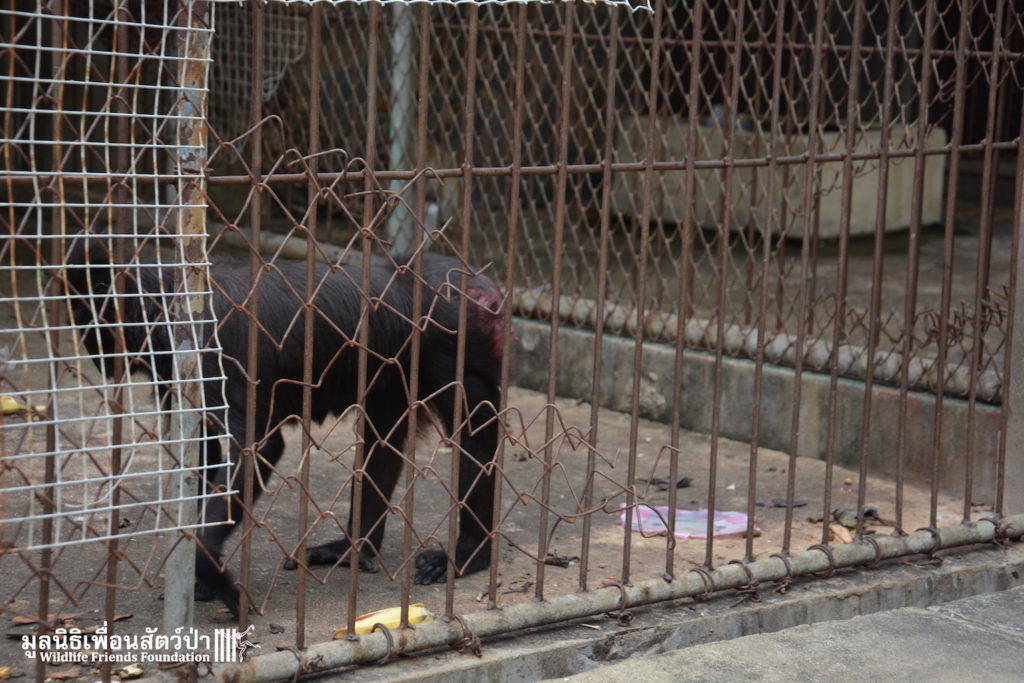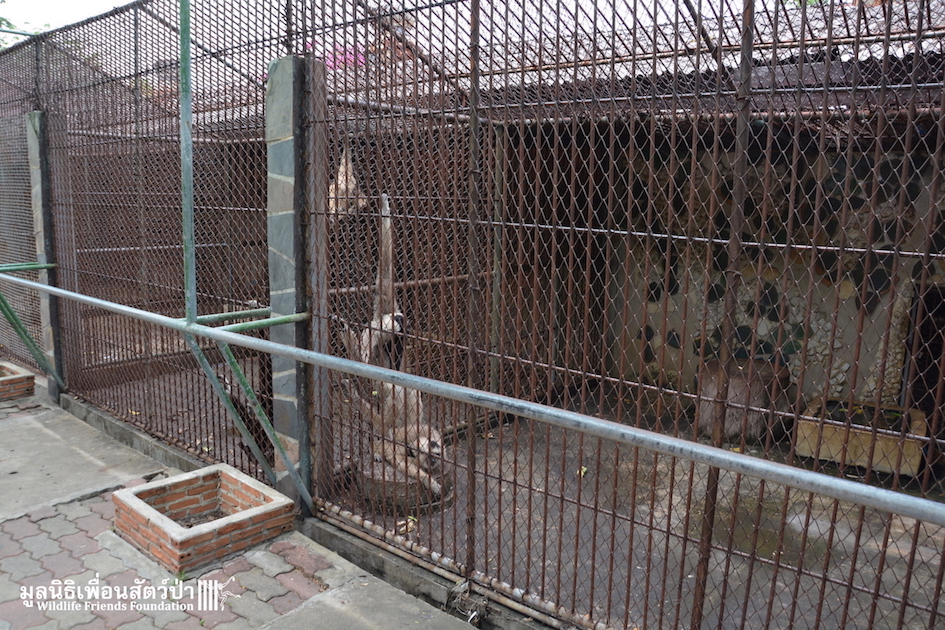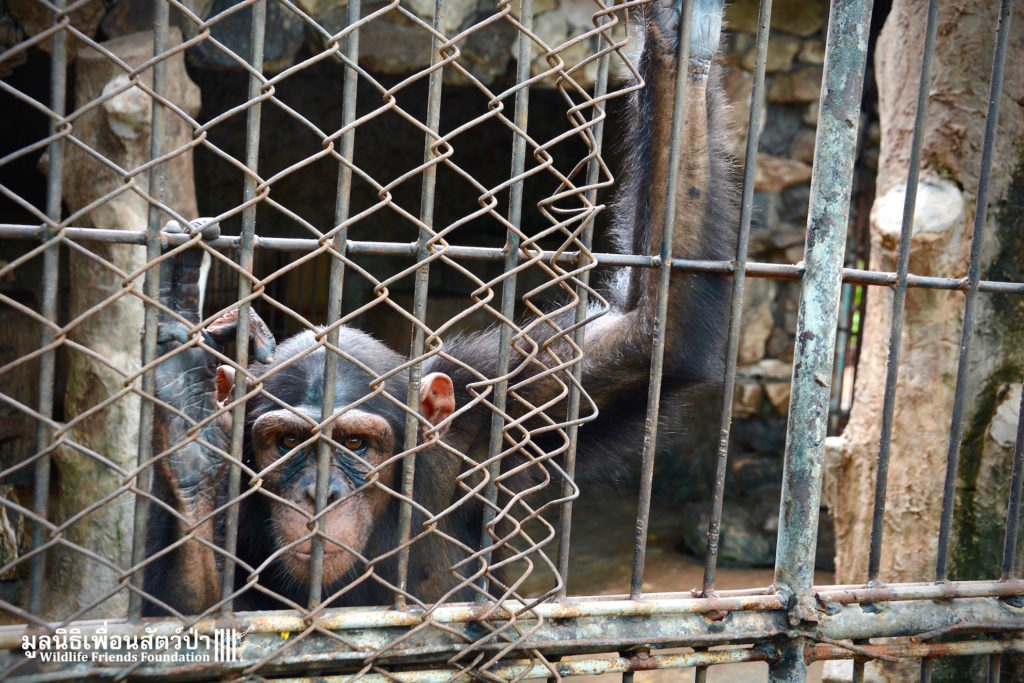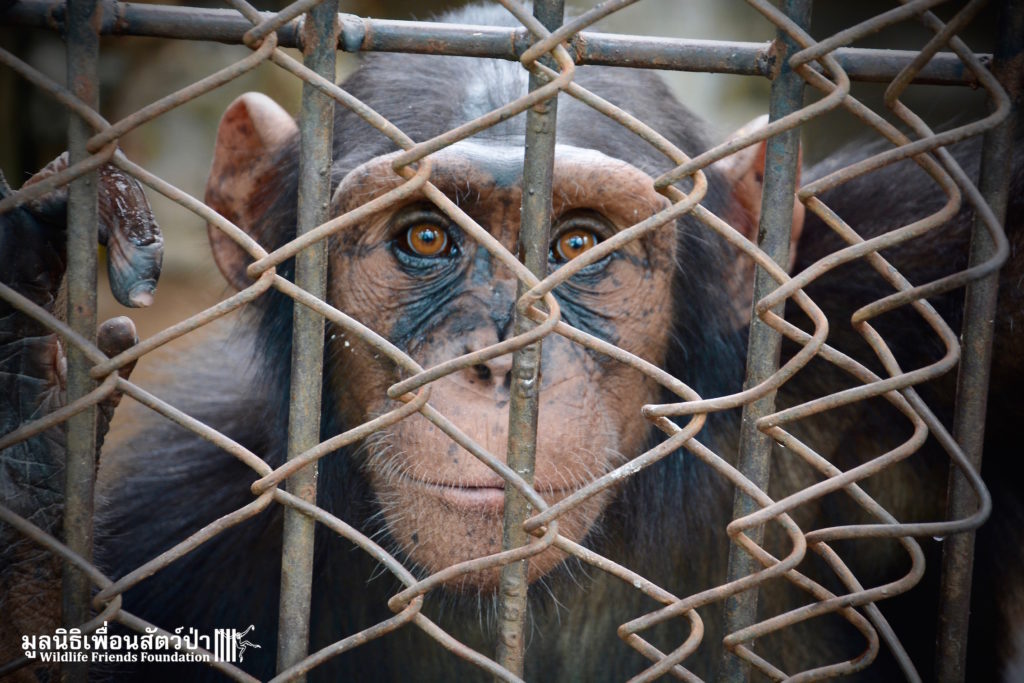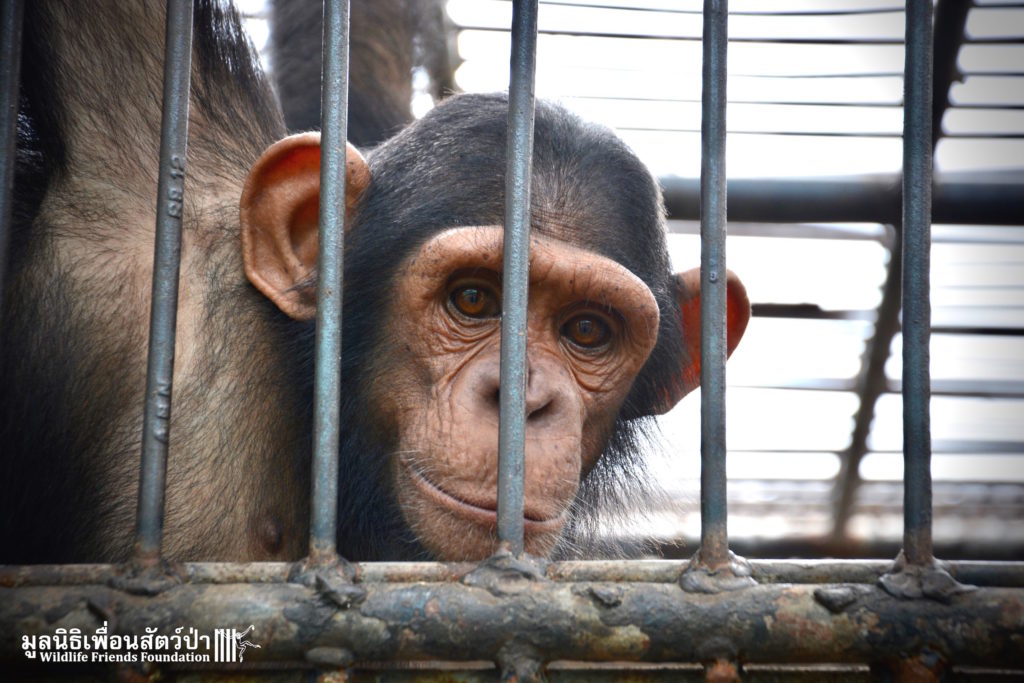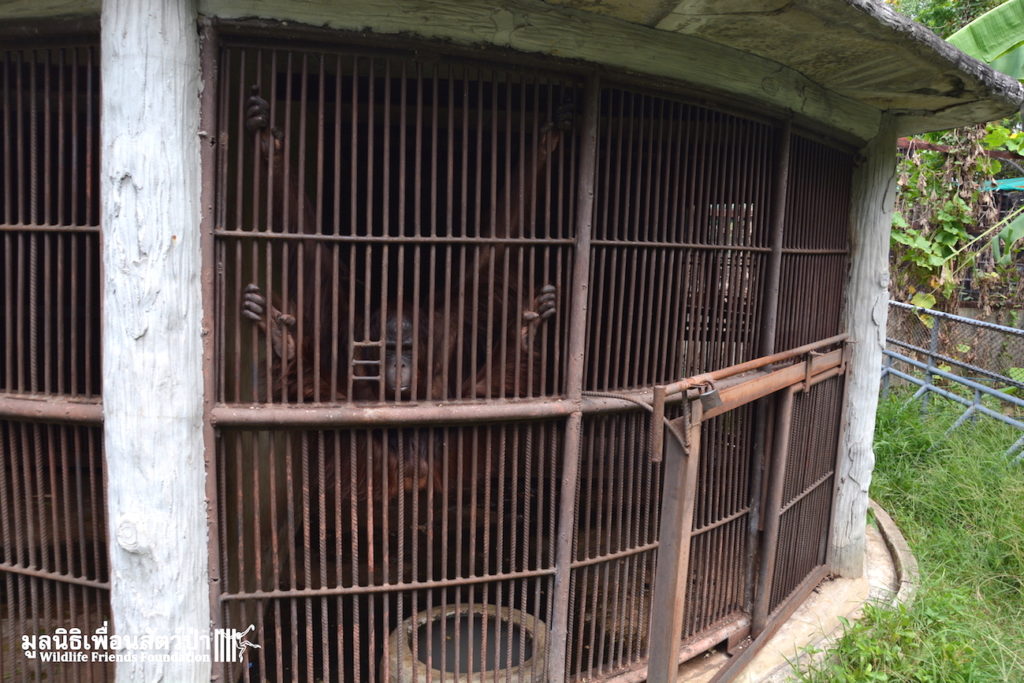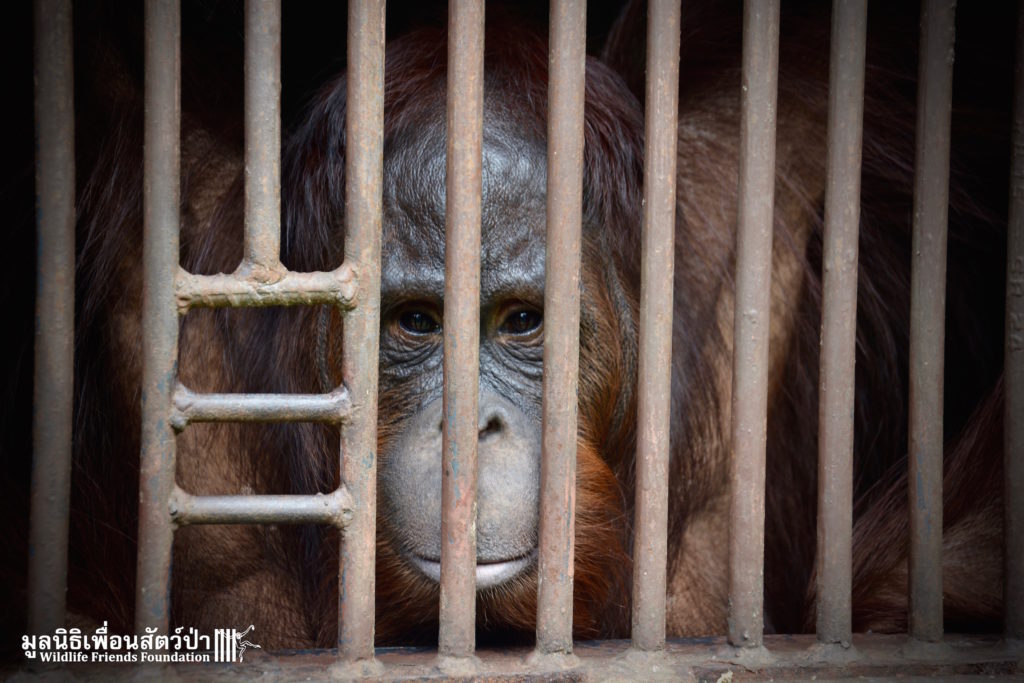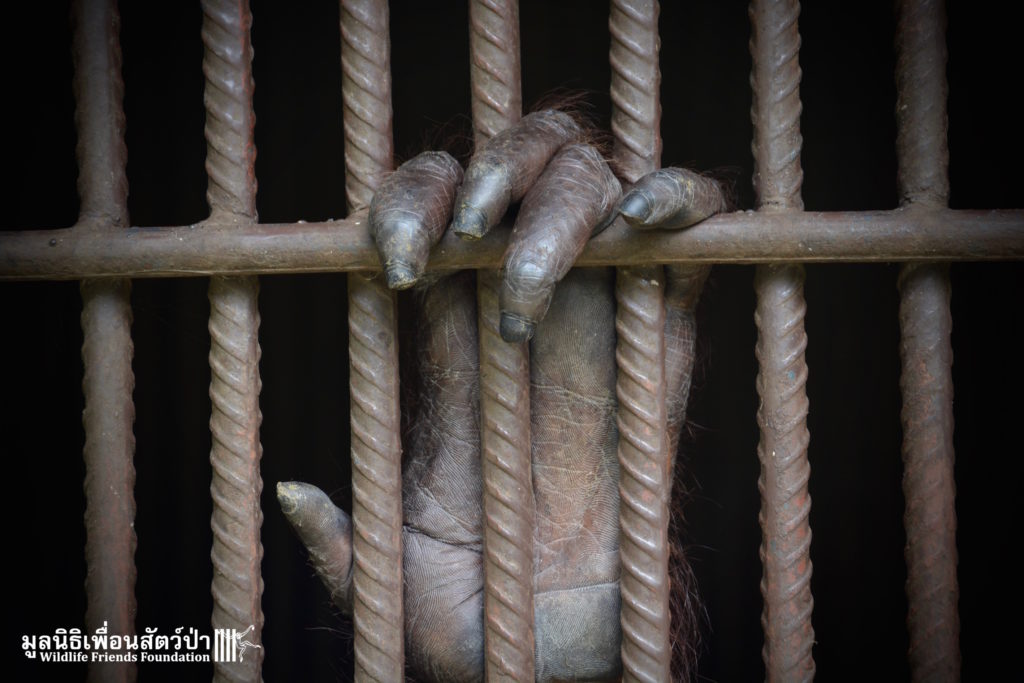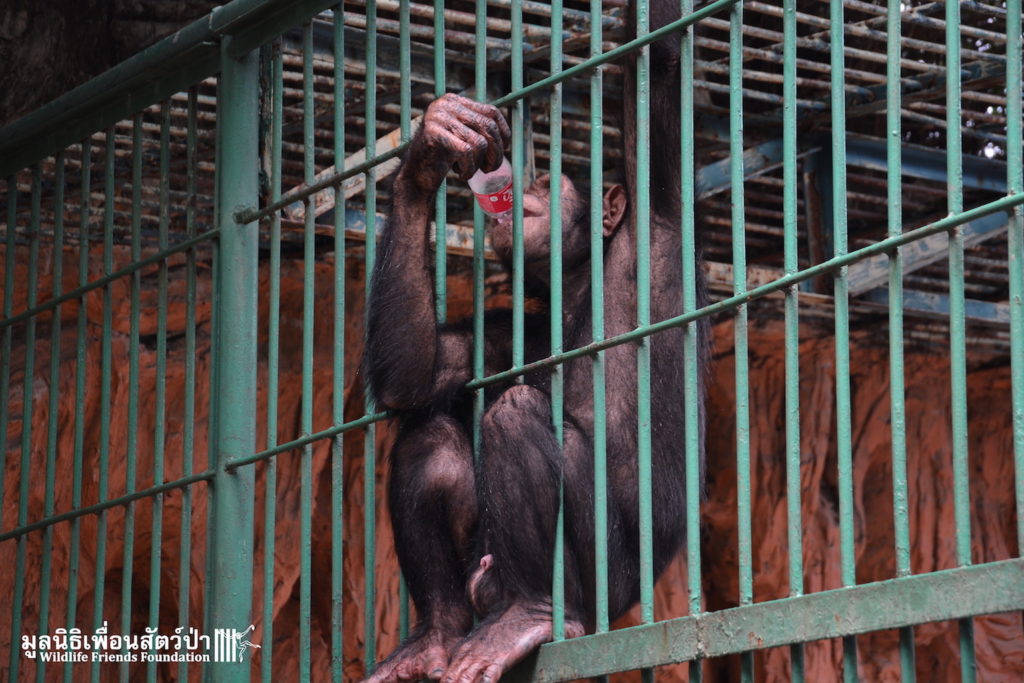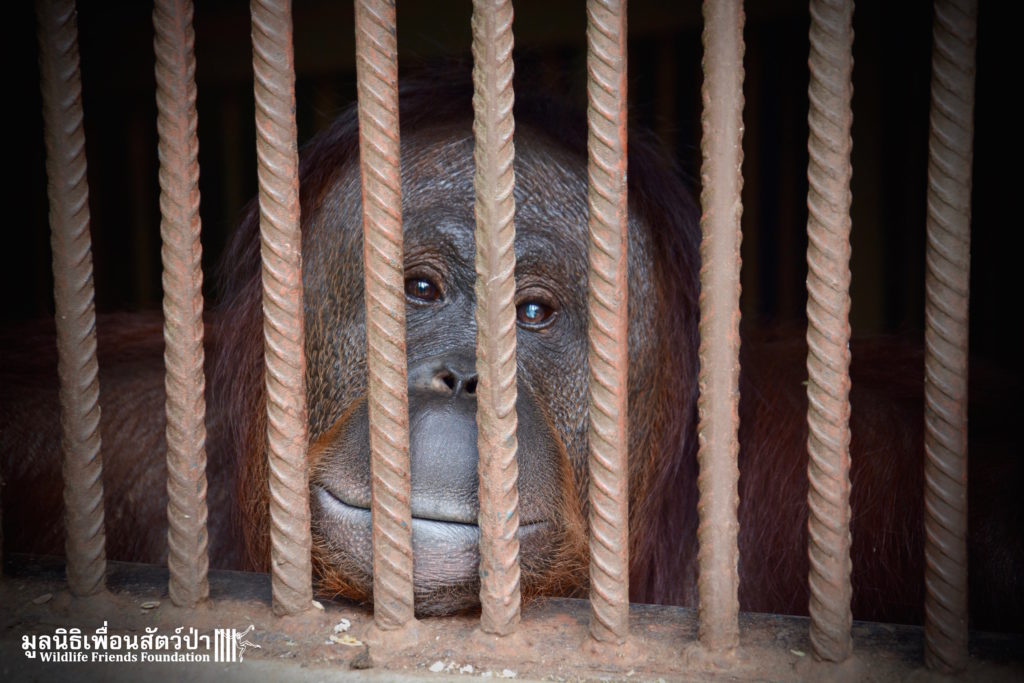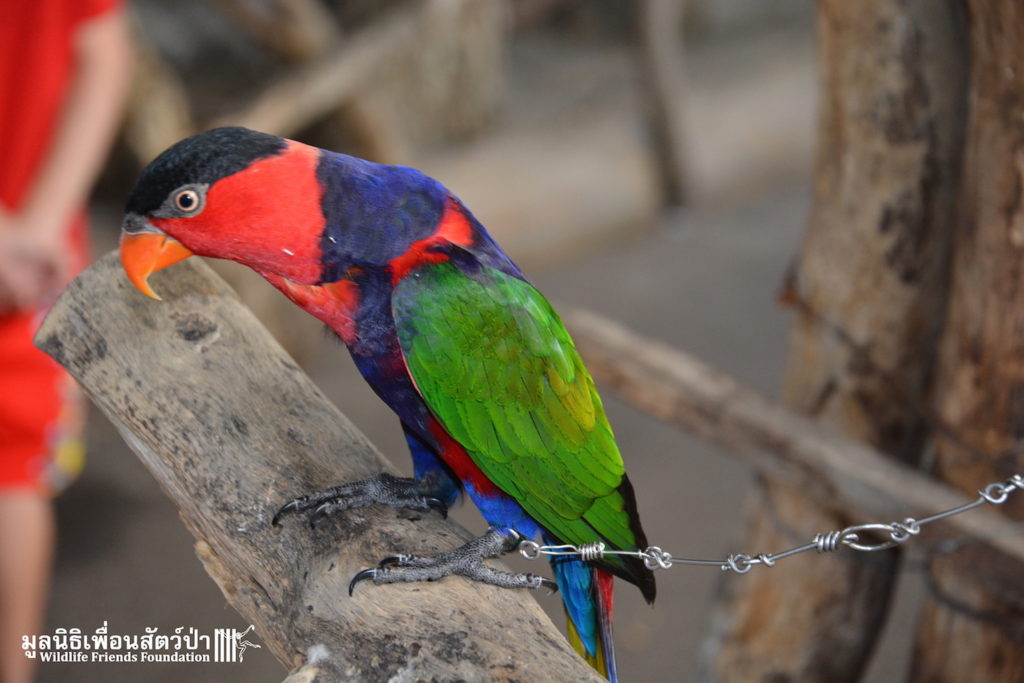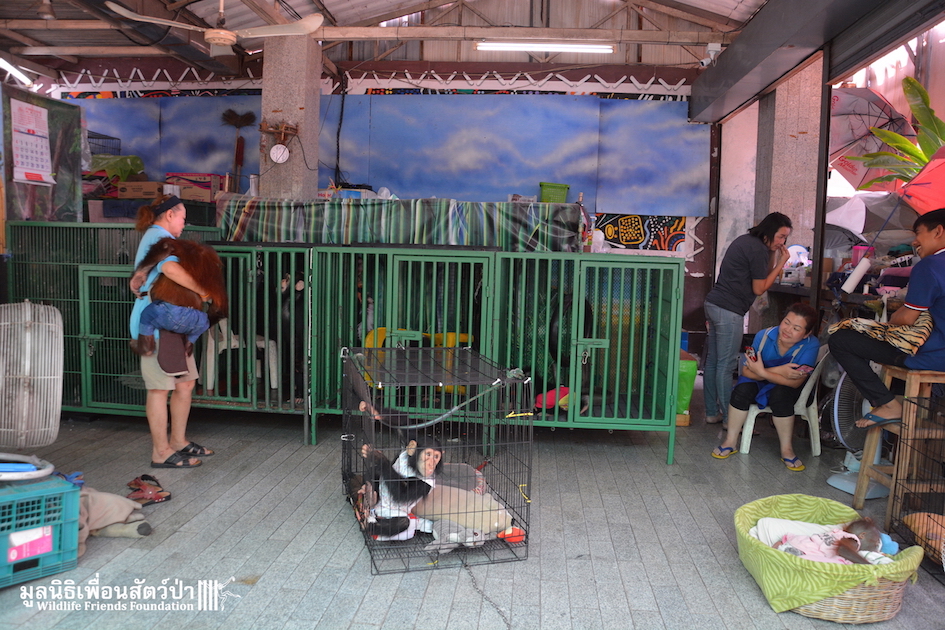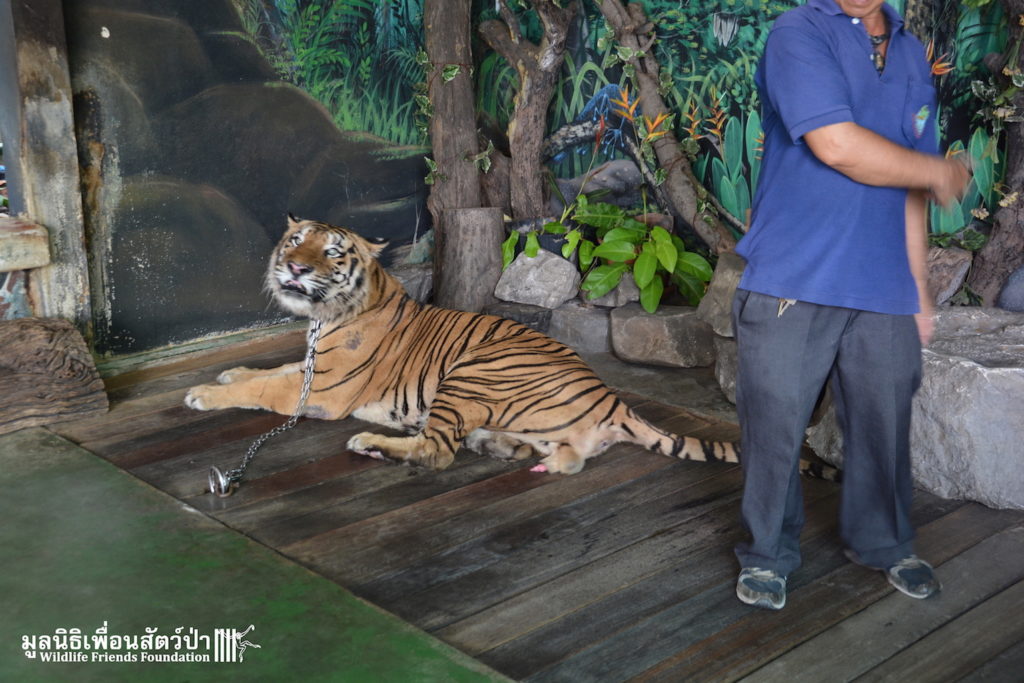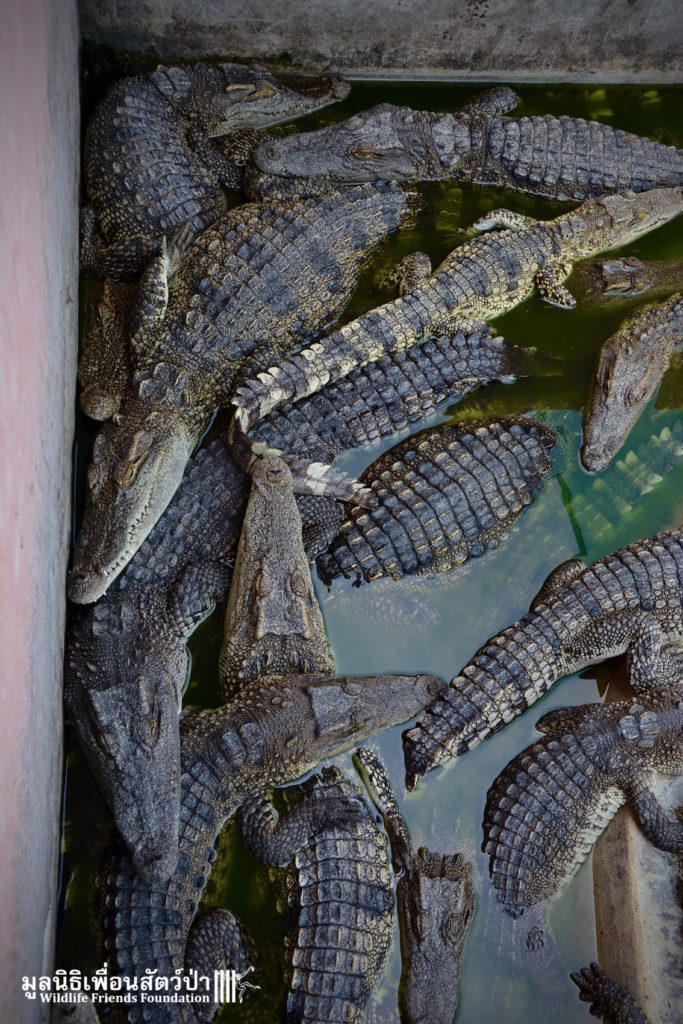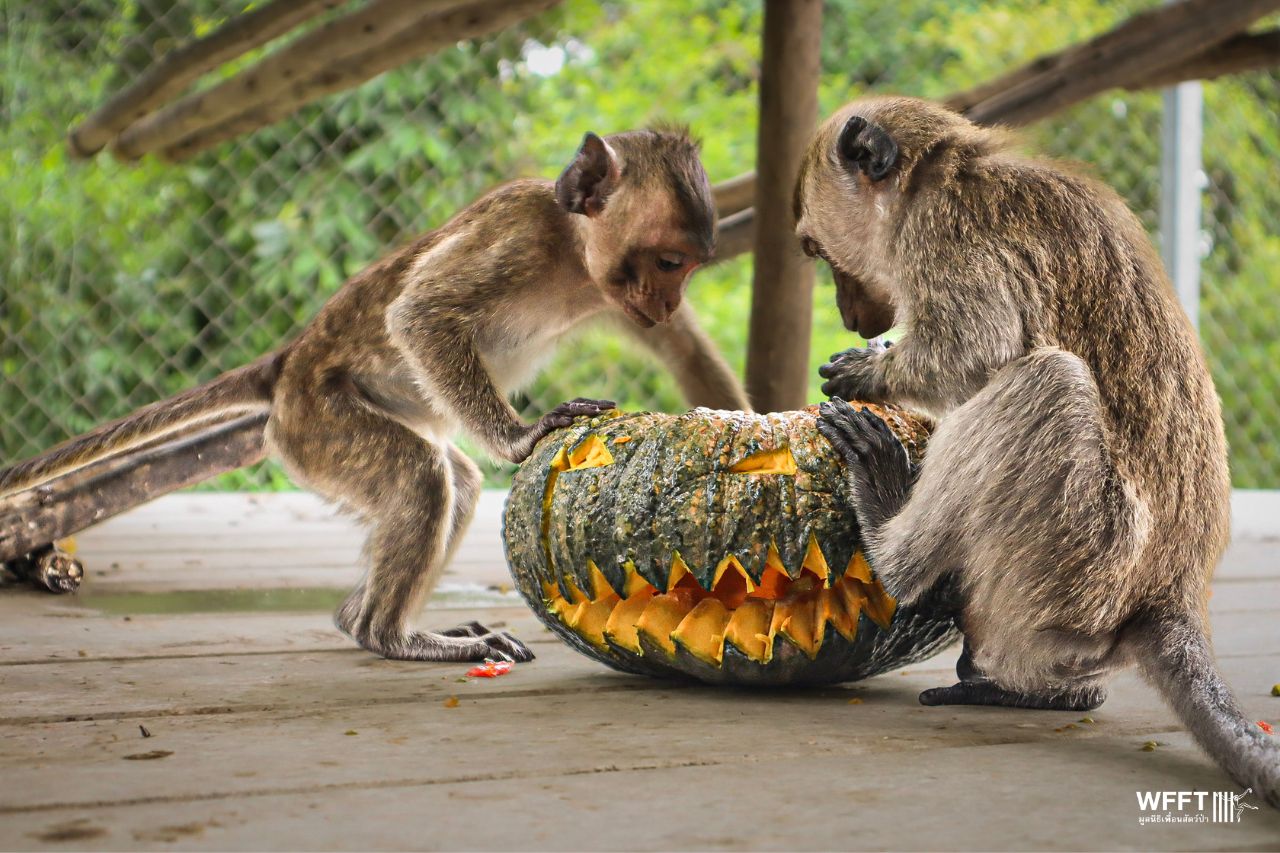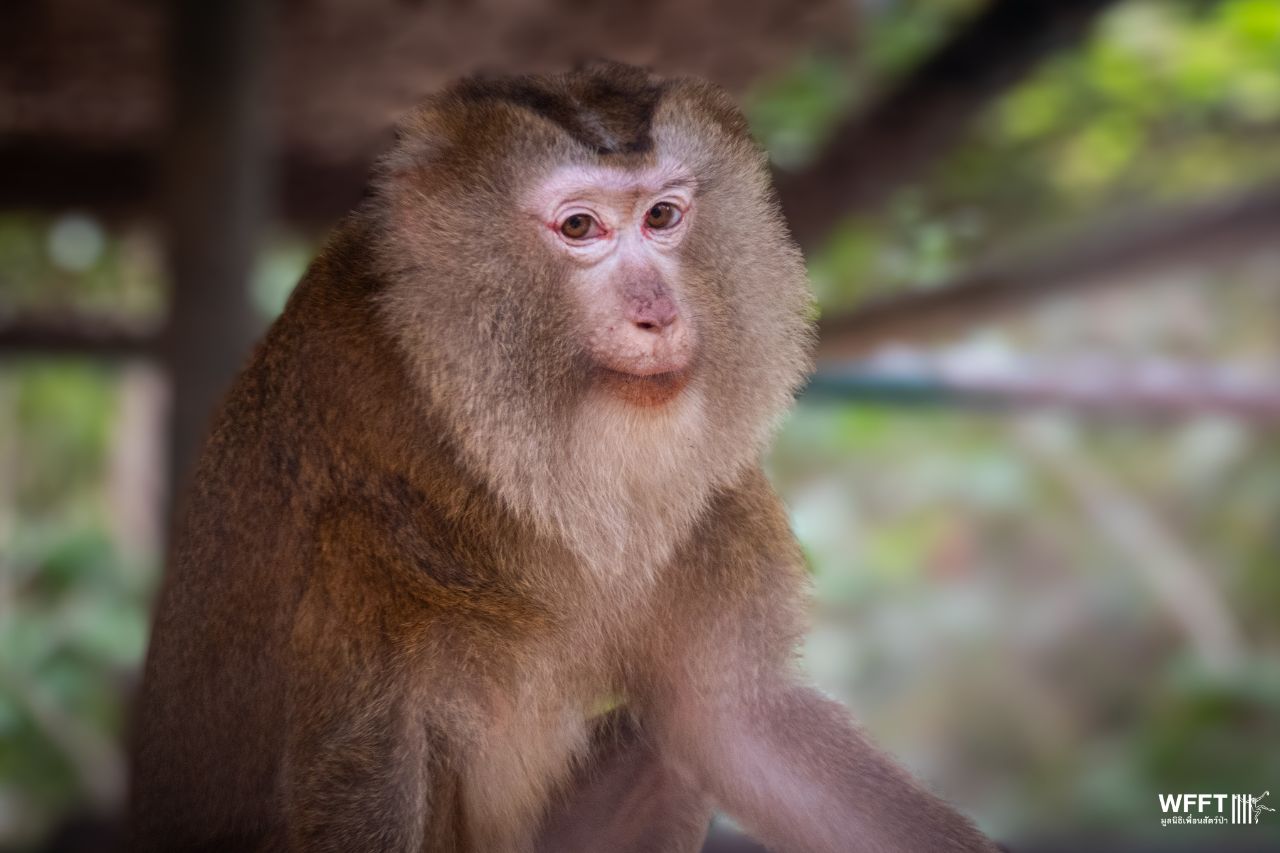Six new rescues. Six victims of the exotic pet trade. Every animal tells the same story: wild animals do not belong in homes.
Statement on Animal Welfare at Samut Prakarn Croc Farm and Zoo
ภาษาไทยด้านล่าง
Following numerous emails we have received since the article on wildlife tourism was published yesterday by Nat Geo, we have decided to make a public statement on the issue surrounding the welfare of the animals housed at Samut Prakarn Crocodile Farm and Zoo. (Suffering unseen: The dark truth behind wildlife tourism https://on.natgeo.com/2LIs8ZG).
Last year, around the same time the photographs were taken, a team from WFFT visited the zoo to assess the treatment of the animals housed there after numerous complaints from the public. The team found thousands of animals languishing in deplorable conditions. In particular, the elephants were clearly malnourished and suffering from some digestive problems. As you can see from the photographs, their stools were liquid. Sadly it is not only the elephants that suffer in this old-fashioned run-down zoo on the outskirts of Bangkok – the welfare standards of all animals housed there are terrible.
WFFT’s founder, Edwin Wiek, actively works as an honorary member in Thailand parliament focusing on animal welfare and wildlife conservation matters. This includes captive elephant welfare and the management of wild elephant populations.
After the authorities were alerted to the plight of the elephants the zoo was inspected. WFFT’s founder, Edwin Wiek, was part of the team that inspected the zoo to check on the welfare of the elephants. The zoo was instructed to improve the welfare including better food and less work for the elephants. However, sadly we have seen little overall change. We are monitoring this situation closely and hope that something will be done. WFFT is willing to provide any logistics to the authorities upon request.
Media coverage from December last year after the photograph was taken “Rest ordered for skinny elephants at Samut Prakarn zoo https://bit.ly/2Hwt6D1
Regarding the rescue of elephants, this is a rather controversial topic for a multitude of reasons. Firstly, captive elephants are classified as domestic livestock animals here in Thailand and are listed under the Draught Animals Act 1939 (Beast of Burden Act). This means they can be legally owned by private individuals or businesses. These animals are legally traded throughout their long lives and in some instances sold to many different owners. Thailand still has one of the highest populations of captive elephants in the world, predominantly used in the tourist industry. Thailand currently has around 200 elephant tourist camps and zoos that house elephants.
WFFT is in discussion with the Animal Welfare Division of the livestock department and we have been informed that the elephants are being checked regularly by veterinarians and receiving the correct veterinary treatment. Many people have asked about Gluay Horn’s broken leg. He does not have a broken leg – when the picture was taken it was swollen from pulling away from the chain. His leg has now been treated by a veterinarian and is in a far better condition.
We will continue to campaign and fight for animals that languish in tourist attractions around Thailand.
Please note that the photographs in this album were taken last year.
รายงานเกี่ยวกับสวัสดิภาพของสัตว์ที่ฟาร์มจระเข้สมุทรปราการ
เจ้าหน้าที่มูลนิธิเพื่อนสัตว์ป่าได้รับอีเมลล์และการร้องเรียนผ่านเว็บไซต์จำนวนมากเกี่ยวกับสัตว์ป่าถูกนำมาใช้งานในอุตสาหกรรมการท่องเที่ยว หลังจากบทความของ Nat Geo ถูกเผยแพร่ต่อสาธารณชน พวกเราตัดสินใจเผยแพร่บทความเกี่ยวกับปัญหาที่เกิดขึ้นกับสวัสดิภาพของสัตว์ที่อาศัยอยู่ที่ฟาร์มจระเข้สมุทรปราการ (https://on.natgeo.com/2LIs8ZG)
ในช่วงเวลาเดียวกันกับที่ภาพถูกบันทึกเมื่อปีที่แล้ว หลังจากเจ้าหน้าที่ได้รับจดหมายร้องเรียน เจ้าหน้าที่มูลนิธิเพื่อนสัตว์ป่าจึงเดินทางไปยังฟาร์มจระเข้สมุทรปราการเพื่อประเมินคุณภาพชีวิตของสัตว์ที่อาศัยอยู่ที่นั่น พบว่ามีสัตว์นับพันอยู่ในสภาพอ่อนแรงและมีสภาพความเป็นอยู่ไม่เหมาะสม มิใช่เพียงแค่ช้างเท่านั้นที่ตกอยู่ในสภาวะเช่นนั้นในสวนสัตว์แห่งนี้
มาตรฐานสวัสดิภาพของสัตว์ที่อาศัยอยู่ในฟาร์มจระเข้สมุทรปราการสามารถพูดได้ว่าอยู่ในขั้นเลวร้าย โดยเฉพาะอย่างยิ่งช้างที่ทุกคนสามารถสังเกตเห็นได้อย่างชัดเจนเกี่ยวกับรูปร่างที่ผอมสูบเนื่องจากขาดสารอาหาร และมีอาการอ่อนเพลียจากปัญหาเกี่ยวกับระบบขับถ่ายคล้ายของเหลว ท่านสามารถดูได้จากรูปภาพ
คุณเอ็ดวิน วิค ผู้ก่อตั้งมูลนิธิเพื่อนสัตว์ป่า และเจ้าหน้าที่รีบเข้าไปตรวจสอบฟาร์มจระเข้ฯทันทีหลังจากได้รับแจ้งให้ทราบถึงสภาพของช้าง ฟาร์มจระเข้ฯได้รับคำสั่งให้ปรับปรุงสวัสดิภาพ รวมถึงอาหารที่ดีมากขึ้น และใช้ช้างทำงานน้อยลง เจ้าหน้าที่ได้ติดตามการแก้ปัญหาอย่างใกล้ชิดและหวังอย่างยิ่งให้ปัญหาดังกล่าวได้รับการปรับปรุงแก้ไข อย่างไรก็ตามการเปลี่ยนแปลงเกิดขึ้นเพียงเล็กน้อยเท่านั้น
มูลนิธิเพื่อนสัตว์ป่ามีความตั้งใจที่จะให้ความช่วยเหลือในทุกด้านที่สามารถช่วยได้
หลังจากมีการบันทึกภาพถ่าย “Rest ordered for skinny elephants at Samut Prakarn zoo” (https://bit.ly/2Hwt6D1) ในช่วงเดือนธันวาคมเมื่อปีที่แล้ว
เรื่องราวเกี่ยวกับการช่วยเหลือช้าง มีข้อถกเถียงมากมายเกี่ยวกับการช่วยเหลือ ไม่ว่าจะเป็นเกี่ยวกับ กฎหมายพระราชบัญญติสัตว์พาหนะ พ.ศ. 2482 โดยจัดหมวดหมู่ในเรื่องของช้างเลี้ยงถือ เป็นสัตว์พาหนะ สามารถทำตั๋วรูปพรรณ การคุ้มครองช้าง ซากช้าง การเคลื่อนย้ายช้าง การซื้อขาย โอนกรรมสิทธิ์ช้าง การใช้แรงงานช้าง และการทารุณช้าง เป็นต้น ประเทศไทยมีประชากรช้างเลี้ยงมากที่สุดในโลก ประมาณ 200 เชือก ในปางช้าง และสวนสัตว์ ช้างเหล่านี้ถูกนำมาใช้ในอุตสาหกรรมการท่องเที่ยว
มูลนิธิเพื่อนสัตว์ป่า ได้ปรึกษาหารือเกี่ยวกับสวัสดิภาพของสัตว์ที่กรมปศุสัตว์ และได้รายการเกี่ยวกับช้างที่ได้รับการตรวจเช็คอย่างเป็นประจำโดยสัตวแพทย์ และได้รับการดูแลอย่างถูกวิธี
หลายคนถามถึง ช้างกล้วยหอม ที่ทุกคนเข้าใจว่าขาหัก จากภาพที่เห็นในสื่อออนไลน์ ความจริงแล้วช้างกล้วยหอมมิได้ขาหัก แต่เกิดการพยายามดึงขาออกจากโซ่ที่ล่ามจนทำให้ขาบวม ในขณะนี้ขาของช้างกล้วยหอมได้รับการรักษาและดูแลที่ดีมากขึ้นโดยสัตวแพทย์
มูลนิธิเพื่อนสัตว์ป่าจะเดินหน้าต่อรณรงค์ และสู้ต่อไปเพื่อสัตว์ที่ถูกใช้งานอย่างหนักเพื่ออุตสาหกรรมการท่องเที่ยวในประเทศไทย
โปรดรับทราบโดยทั่วกัน ภาพดังกล่าวถูกบันทึกไว้เมื่อปีที่แล้ว
